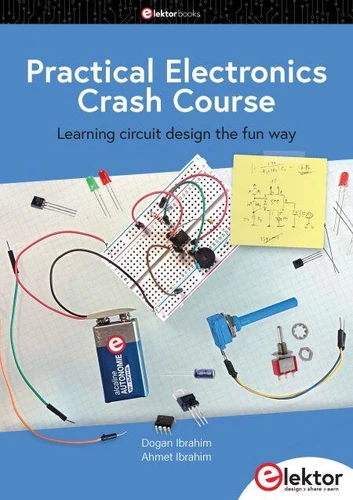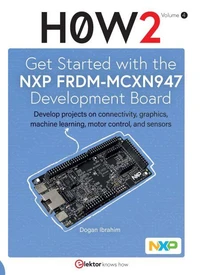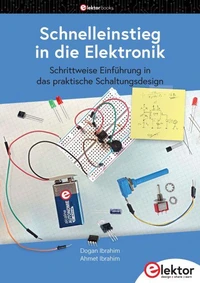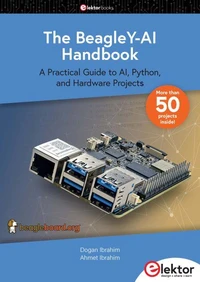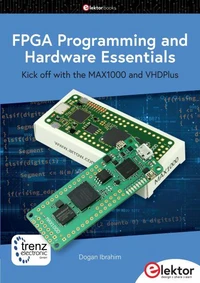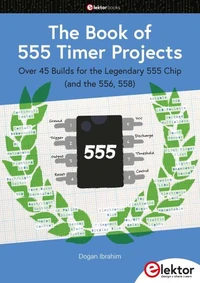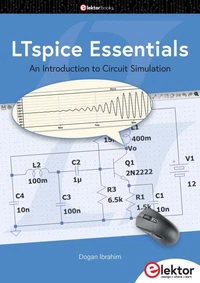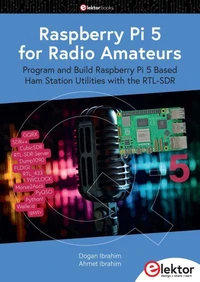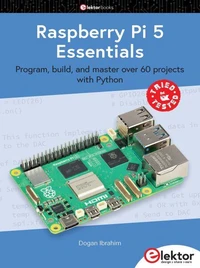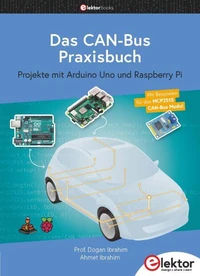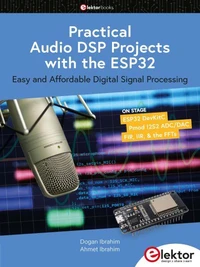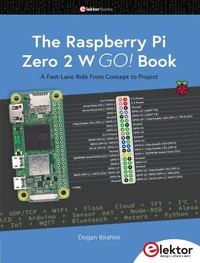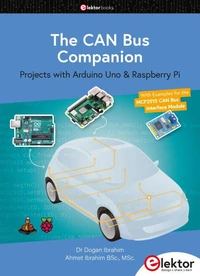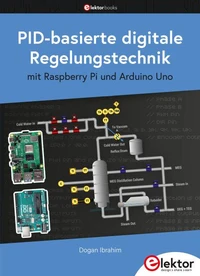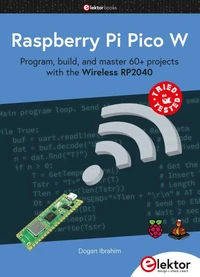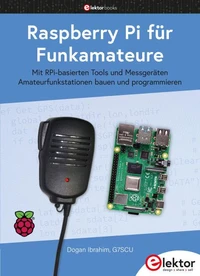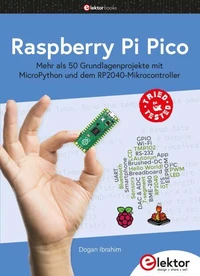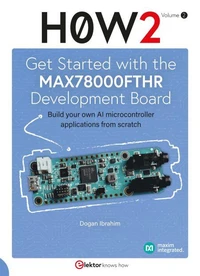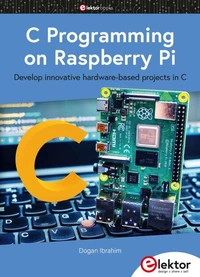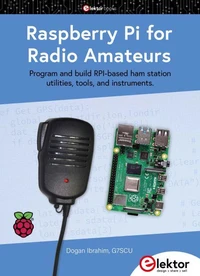Practical Electronics Crash Course. Learning circuit design the fun way
Par : ,Formats :
Disponible dans votre compte client Decitre ou Furet du Nord dès validation de votre commande. Le format PDF est :
- Compatible avec une lecture sur My Vivlio (smartphone, tablette, ordinateur)
- Compatible avec une lecture sur liseuses Vivlio
- Pour les liseuses autres que Vivlio, vous devez utiliser le logiciel Adobe Digital Edition. Non compatible avec la lecture sur les liseuses Kindle, Remarkable et Sony
 , qui est-ce ?
, qui est-ce ?Notre partenaire de plateforme de lecture numérique où vous retrouverez l'ensemble de vos ebooks gratuitement
Pour en savoir plus sur nos ebooks, consultez notre aide en ligne ici
- Nombre de pages272
- FormatPDF
- ISBN978-3-89576-606-0
- EAN9783895766060
- Date de parution17/12/2024
- Protection num.Digital Watermarking
- Taille49 Mo
- Infos supplémentairespdf
- ÉditeurElektor
Résumé
Welcome to the world of electronics!
Getting started in electronics is not as difficult as you may think. Using this book, you will explore and learn the most important electrical and electronics engineering concepts in a fun way by doing various experiments and by simulating circuits. It will teach you electronics practically without getting into complex technical jargon and long calculations.
As a result, you will be creating your own projects soon. No prior knowledge of electronics is required, only some basic algebra is used in a few simple calculations. Many tested and working projects and simulations are presented to familiarise yourself with the construction of electronic circuits. Circuit simulation is introduced at an early stage to enable you to experiment with circuits easily without breaking anything.
You will learn: > The concepts of voltage, current, and power > AC and DC > Basic lamp circuits with switches > Passive components: resistors, capacitors & inductors > RC & RCL circuits > Electromagnetism > Loudspeakers, relays, buzzers, and transformers > Active components: diodes & LEDs, bipolar transistors & MOSFETs > Transistor-based switching circuits > Optocoupler circuits > Astable & monostable multivibrators > Using the 555 timer IC > The operational amplifier > Digital logic > Advanced examples: amplifiers, oscillators, filters, and sensors > Test and measurement tools > Microcontrollers: Arduino UNO, ESP32, Raspberry Pi Pico, and Raspberry Pi > Reading datasheets and best practices for selecting components > EMC & EMI and norms & regulations
As a result, you will be creating your own projects soon. No prior knowledge of electronics is required, only some basic algebra is used in a few simple calculations. Many tested and working projects and simulations are presented to familiarise yourself with the construction of electronic circuits. Circuit simulation is introduced at an early stage to enable you to experiment with circuits easily without breaking anything.
You will learn: > The concepts of voltage, current, and power > AC and DC > Basic lamp circuits with switches > Passive components: resistors, capacitors & inductors > RC & RCL circuits > Electromagnetism > Loudspeakers, relays, buzzers, and transformers > Active components: diodes & LEDs, bipolar transistors & MOSFETs > Transistor-based switching circuits > Optocoupler circuits > Astable & monostable multivibrators > Using the 555 timer IC > The operational amplifier > Digital logic > Advanced examples: amplifiers, oscillators, filters, and sensors > Test and measurement tools > Microcontrollers: Arduino UNO, ESP32, Raspberry Pi Pico, and Raspberry Pi > Reading datasheets and best practices for selecting components > EMC & EMI and norms & regulations
Welcome to the world of electronics!
Getting started in electronics is not as difficult as you may think. Using this book, you will explore and learn the most important electrical and electronics engineering concepts in a fun way by doing various experiments and by simulating circuits. It will teach you electronics practically without getting into complex technical jargon and long calculations.
As a result, you will be creating your own projects soon. No prior knowledge of electronics is required, only some basic algebra is used in a few simple calculations. Many tested and working projects and simulations are presented to familiarise yourself with the construction of electronic circuits. Circuit simulation is introduced at an early stage to enable you to experiment with circuits easily without breaking anything.
You will learn: > The concepts of voltage, current, and power > AC and DC > Basic lamp circuits with switches > Passive components: resistors, capacitors & inductors > RC & RCL circuits > Electromagnetism > Loudspeakers, relays, buzzers, and transformers > Active components: diodes & LEDs, bipolar transistors & MOSFETs > Transistor-based switching circuits > Optocoupler circuits > Astable & monostable multivibrators > Using the 555 timer IC > The operational amplifier > Digital logic > Advanced examples: amplifiers, oscillators, filters, and sensors > Test and measurement tools > Microcontrollers: Arduino UNO, ESP32, Raspberry Pi Pico, and Raspberry Pi > Reading datasheets and best practices for selecting components > EMC & EMI and norms & regulations
As a result, you will be creating your own projects soon. No prior knowledge of electronics is required, only some basic algebra is used in a few simple calculations. Many tested and working projects and simulations are presented to familiarise yourself with the construction of electronic circuits. Circuit simulation is introduced at an early stage to enable you to experiment with circuits easily without breaking anything.
You will learn: > The concepts of voltage, current, and power > AC and DC > Basic lamp circuits with switches > Passive components: resistors, capacitors & inductors > RC & RCL circuits > Electromagnetism > Loudspeakers, relays, buzzers, and transformers > Active components: diodes & LEDs, bipolar transistors & MOSFETs > Transistor-based switching circuits > Optocoupler circuits > Astable & monostable multivibrators > Using the 555 timer IC > The operational amplifier > Digital logic > Advanced examples: amplifiers, oscillators, filters, and sensors > Test and measurement tools > Microcontrollers: Arduino UNO, ESP32, Raspberry Pi Pico, and Raspberry Pi > Reading datasheets and best practices for selecting components > EMC & EMI and norms & regulations

